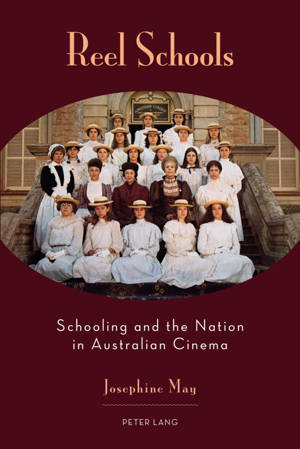
- Afhalen na 1 uur in een winkel met voorraad
- Gratis thuislevering in België vanaf € 30
- Ruim aanbod met 7 miljoen producten
- Afhalen na 1 uur in een winkel met voorraad
- Gratis thuislevering in België vanaf € 30
- Ruim aanbod met 7 miljoen producten
Zoeken
€ 111,45
+ 222 punten
Omschrijving
Reel Schools takes a fresh look at the history of Australian schooling through the lens of Australian cinema from the silent era until 2010. In exploring the relationship between cinematic representation and educational history, Josephine May shows how numerous Australian feature and documentary films offer access to powerful vernacular imaginings about school education in Australia.
May argues that the cinematic school is a pervasive metaphor for the Australian nation. She demonstrates that, while Australian films about schooling have consistently commented on the relationship of schooling to the Australian class structure, they also increasingly explored gender, race and ethnicity at school, especially after the 1970s. From then on the egalitarian dream of school education and the nation's capacity to generate meaningful futures for the young became increasingly contested.
May argues that the cinematic school is a pervasive metaphor for the Australian nation. She demonstrates that, while Australian films about schooling have consistently commented on the relationship of schooling to the Australian class structure, they also increasingly explored gender, race and ethnicity at school, especially after the 1970s. From then on the egalitarian dream of school education and the nation's capacity to generate meaningful futures for the young became increasingly contested.
Specificaties
Betrokkenen
- Auteur(s):
- Uitgeverij:
Inhoud
- Aantal bladzijden:
- 285
- Taal:
- Engels
Eigenschappen
- Productcode (EAN):
- 9783034306324
- Verschijningsdatum:
- 20/02/2013
- Uitvoering:
- Paperback
- Formaat:
- Trade paperback (VS)
- Afmetingen:
- 150 mm x 224 mm
- Gewicht:
- 408 g

Alleen bij Standaard Boekhandel
+ 222 punten op je klantenkaart van Standaard Boekhandel
Beoordelingen
We publiceren alleen reviews die voldoen aan de voorwaarden voor reviews. Bekijk onze voorwaarden voor reviews.











